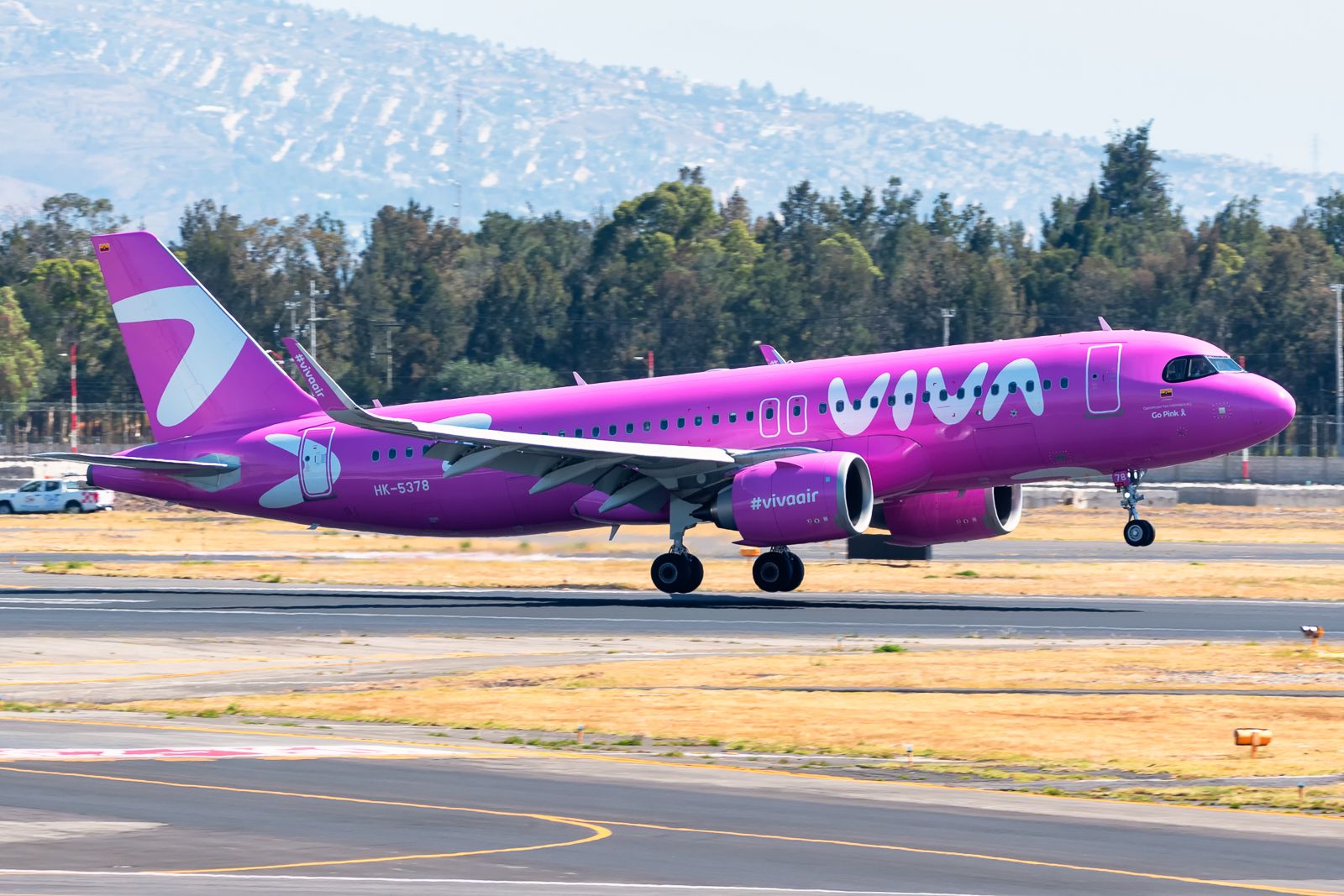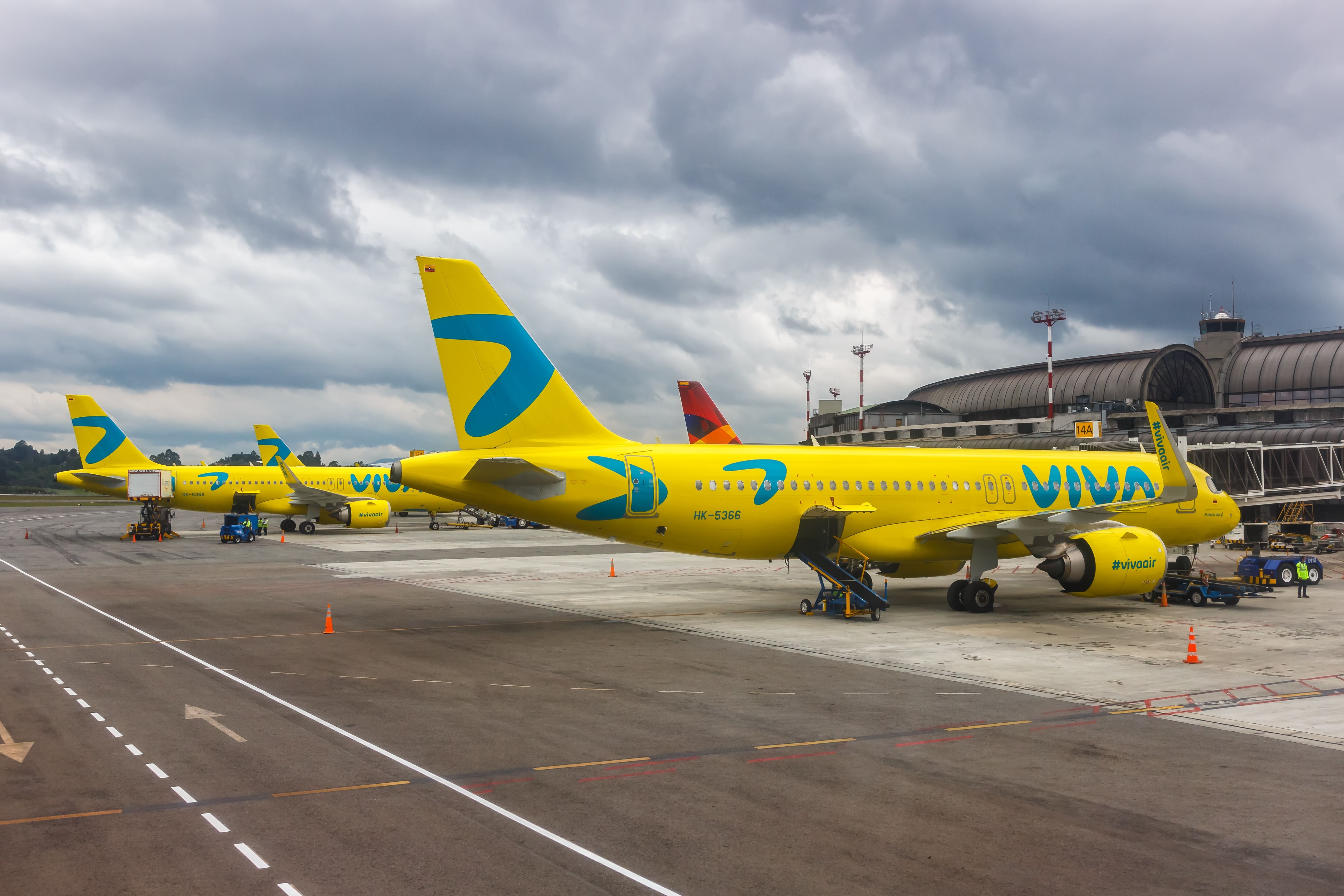On Friday, the Colombian ultra-low-cost carrier Viva Air Colombia filed for a reorganization process in the South American country, which will give it 90 days to restructure its debts through negotiations with its main creditors while it awaits the possible approval of its merger with Avianca.
Is Viva in trouble?
Viva Air Colombia has launched a reorganization effort called a Process of Entrepreneurial Recovery in the South American country. This process allows the company to negotiate with its main creditors and continue to operate while the negotiations are ongoing.
Find the latest South American aviation news here.
It works in a similar way, although on a much smaller scale, than a Chapter 11 bankruptcy process in the United States, where the company becomes a debtor-in-possession but is allowed to continue its business while the process goes on. During the COVID-19 pandemic, three Latin American airlines filed for and successfully emerged from Chapter 11 processes, Avianca, Aeroméxico, and LATAM Airlines Group.
In a statement, Viva said,
“After studying all the viable alternatives to face our current situation, we entered this voluntary process of mediation while we wait for the urgent decision regarding our merger with Avianca.”
Avianca and Viva are looking to merge under one holding. The ultra-low-cost carrier faces a complex financial situation and has said in the past that the only way it could survive long-term would be through a capital injection. This week, Chile’s JetSMART announced its intentions to acquire Viva Air, purchasing 100% of the shares of the Colombian ultra-low-cost airline.
Viva’s current reorganization process in Colombia will only impact the airline branch in that country. The smaller Viva Peru is left out of the process but will continue to operate, Viva confirmed Simple Flying.
Could the airline go bankrupt?
It is important to say that Viva Air Colombia is not filing for bankruptcy. The airline will continue to operate both in the Colombian and Peruvian markets. This process gives the ultra-low-cost airline time to catch its breath, renegotiate, and, most importantly, time. The merger with Avianca has been on hold for months now while the Colombian civil aviation authority analyzes the possible consequences of allowing these two carriers to partner under one roof (number one and number three in terms of passenger numbers and capacity offered). Simple Flying reached Avianca for comment on Viva's reorganization process. The airline was not immediately available.
Nonetheless, Viva is not out of the woods yet. The airline –which had an aggressive expansion in the last few years– could still fold if the merger process drags on or the Colombian authorities block their union (as it has done in the past). In the last few months, Viva has returned some leased aircraft to its owners and canceled routes across the board, including three services departing from Cali International Airport (CLO) earlier this month.
If Viva ceases operations, it would leave a nearly seven million yearly passenger market up for grabs in Colombia alone. Undoubtedly, other carriers, such as Ultra Air (which has fiercely opposed the merger with Avianca), Wingo, and even Avianca or the possible JetSMART Colombia, would be very happy to take the routes and slots left by Viva.
Do you think this is the right move for Viva Air Colombia? Let us know in the comment section.



